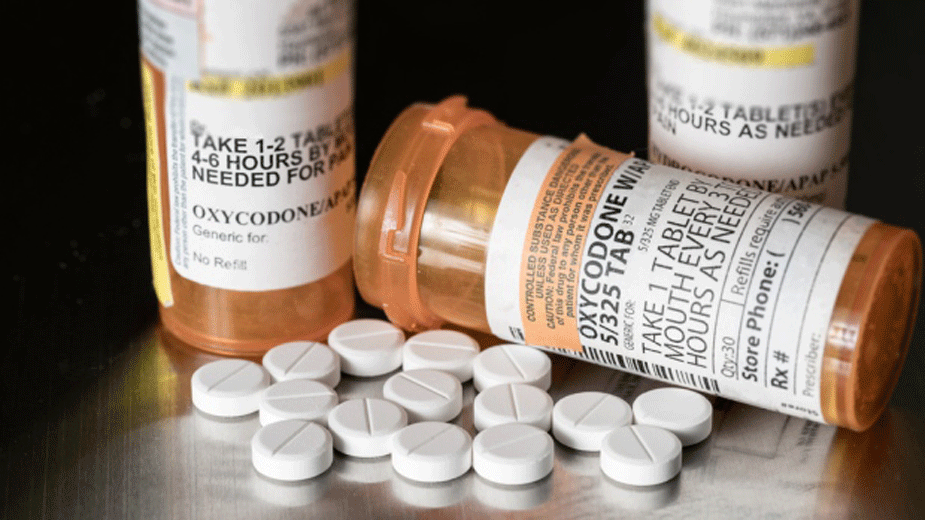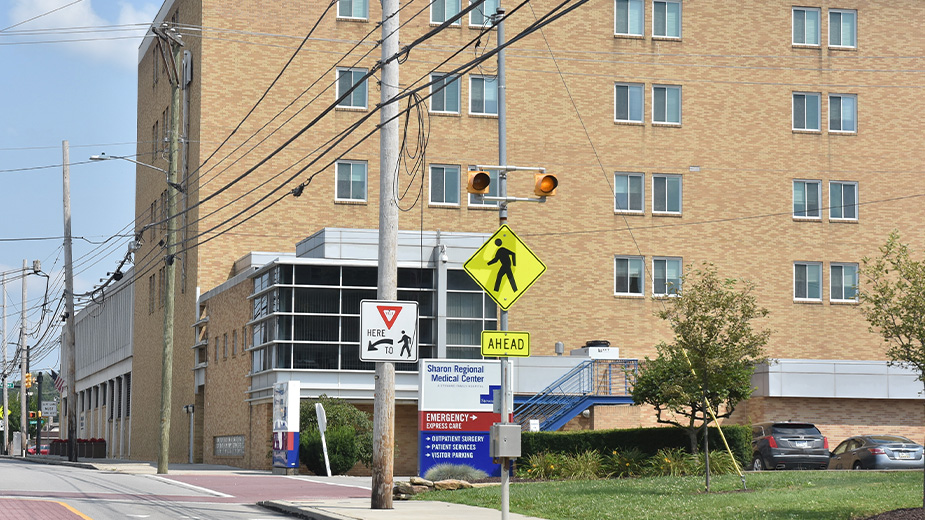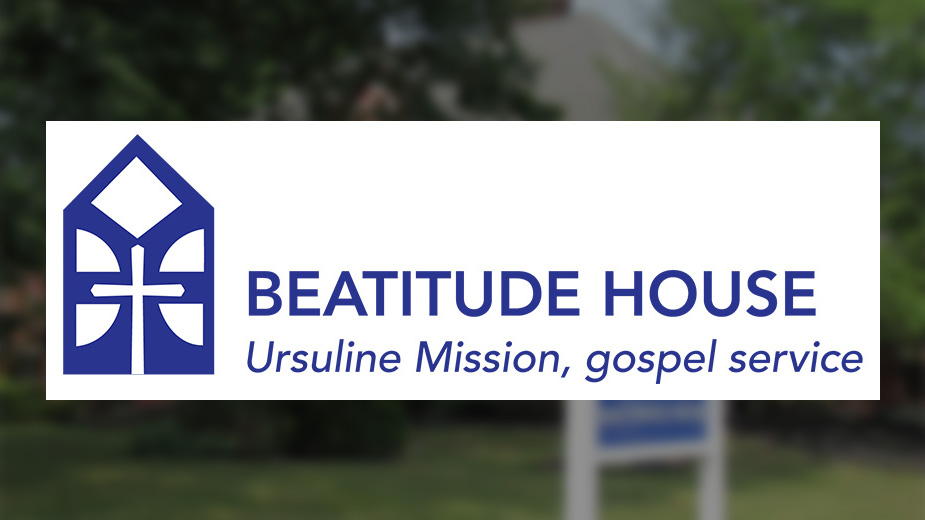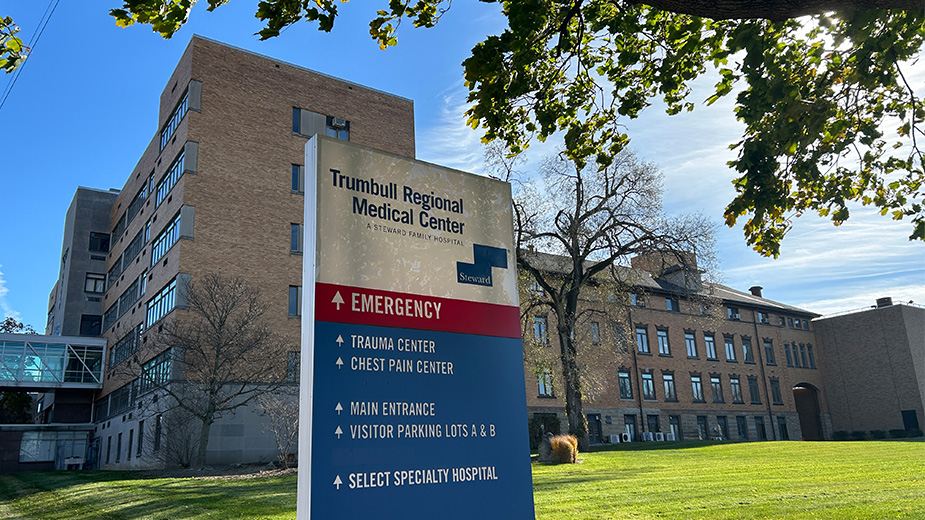Drug Treatment Centers Embrace Recovery
YOUNGSTOWN, Ohio — Dealing with those suffering from substance abuse is a challenge, but for Larry Moliterno, CEO of Meridian HealthCare, it’s also an opportunity to witness progress by those taking advantage of treatment programs.
Fewer people are overdosing, Moliterno says. Yet staff at Meridian HealthCare has to keep up with the unrelenting scourge of substance abuse. The use of cocaine and other stimulants has been increasing, as has addiction to alcohol, he says.
Many overdoses the Meridian staff sees involve fentanyl, a synthetic opioid that’s upward of 100 times stronger than morphine, and often is used as a substitute for other opiates.
“The use of synthetic drugs continues to be an ongoing problem for our industry,” Moliterno says. “Often times, the testing becomes difficult and the testing is expensive for these types of drugs.”
Addiction is a disease and some people are predisposed to become addicted, Moliterno says.
“What we try to do is focus on the successes that we have. When we read in a newspaper about the tragic overdoses, every single one of those is definitely a tragedy for that person and their family,” he says. “What we see every day is people who are embracing recovery.”
Like Meridian, the staff at Neil Kennedy Recovery Centers is seeing an uptick in alcohol abuse, particularly among women, and multi-substance users, reports Executive Director Carolyn Givens. Along with cocaine use, more patients are using meth, heroin and fentanyl.
When Givens came to Neil Kennedy in 2015, the treatment center mostly saw male patients, she says, but in the time since, more women are coming through the doors.
“I’ve seen women over the age of 40 utilizing alcohol a lot more. That’s coupled with benzodiazepine [and] Valium. Other things of that nature,” Givens says. “We’re seeing a lot more folks over the age of 50 that got started on pain medication.”
Typically, people will come to a treatment center reporting they are only using alcohol or prescription medication because those things are considered legal, says Brenda Heidinger, associate director at the Mahoning County Mental Health and Recovery Board. Only after they’ve started treatment will they reveal use of other drugs.
“Trust has to be built up in order for someone to come fully clean,” she says.
“Often what happens is we don’t get a good picture of everything they are using for a while.”
When looking into overdose deaths, almost all involve more than one drug, whether they are opiates, fentanyl, alcohol or another substance laced with fentanyl, according to Heidinger.
At Coleman Professional Services, most of the time staff members are treating those who abuse alcohol, crack and cocaine. But the treatment center is also seeing more people who are abusing opioids, says Susan Bancroft, an outpatient therapist for substance abuse disorders.
“There’s [also] been a recent increase in people who are presenting with methamphetamine use,” she says. “I provide individual counseling only to our clients and we treat people who have occurring mental health issues along with substance use issues.”
Beyond just the use of drugs like heroin, fentanyl or marijuana, Givens says, the treatment centers are also seeing patients arrive using mixtures of drugs.
“What we are seeing in 2018 and 2019 is [more of a use of] multiple substances,” Heidinger affirms. “Sometimes a person will die of what is an opioid overdose, but they weren’t using heroin or fentanyl. They may have been using cocaine that was laced with fentanyl and they may or may not have known that.”
There were five unintentional drug overdose deaths confirmed in March in Mahoning County and three that are suspected but not yet confirmed.
With the task of fighting substance abuse and helping those in need, treatment centers must remain constantly aware of their capacity. For many, that’s meant expanding services and sites to accommodate those seeking treatment.
“We’ve added individuals into our outpatient programs, we’ve increased the number of beds in our residential programs to meet the needs,” says Meridian’s Moliterno. “We’ll continue to do that if we have to.”
While he says he can’t place an exact dollar figure on the investments Meridian has made over his 15 years at the helm of the organization, Moliterno says the center’s work has grown beyond just helping patients get sober.
“We believe that recovery support is important [and] we provide full primary health care for individuals,” he says. “We provide mental health services [and] we provide housing if that’s required. All those other types of services that are going to help minimize the chance of relapse.”
At Neil Kennedy Recovery Centers, Givens says facilities are almost always at capacity. Through a partnership with Mercy Health-Youngstown, Neil Kennedy opened a 16-bed inpatient center at St. Elizabeth Youngstown Hospital in November. It also has outpatient services and extended-stay rehab housing.
“People are coming into treatment at our facility on Rush Boulevard, which usually sees about 60 patients per day,” she says. “I [also] see a lot of partnerships in the community for the welfare of the client.”
As it only offers outpatient care and individual counseling, Coleman Professional Services doesn’t face concerns over capacity, Bancroft says.
“A lot of folks dealing with opiates in particular will seek out services with other agencies who actually provide the medication assisted treatment or opiate therapy,” she says.
And as capacity is met, treatment centers emphasize that what happens beyond their doors plays as big a role as what happens inside.
Givens says the need for those in recovery to see other people participating in therapy in conjunction with medication is equally important to having relationships with caregivers, whether they be recovery center staff, family or support organizations.
“That kind of partnership is a full community approach,” she says. “In our community, [people] have stepped up to the plate.”
Copyright 2024 The Business Journal, Youngstown, Ohio.



